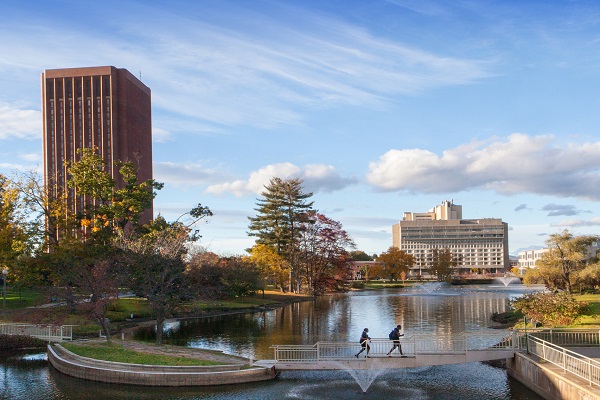University of Massachusetts Amherst: Interdisciplinary Graduate Program in Materials Science and Engineering Launching This Fall at UMass Amherst
The fall 2022 semester marks the launch of an interdisciplinary graduate program at UMass Amherst in materials science and engineering (MSE), involving the participation of nearly 50 faculty members from across the College of Engineering (COE) and the College of Natural Sciences (CNS). The program will offer both M.S. and Ph.D. degrees.
Approved by the Massachusetts Department of Higher Education in March, the program includes faculty from the five departments in COE (biomedical; chemical; civil and environmental; electrical and computer; and mechanical and industrial) as well as the departments of chemistry and physics from CNS. Ashwin Ramasubramaniam, professor of mechanical and industrial engineering and an expert in computational materials engineering, is serving as the inaugural director of the program.
There is a strong national and regional demand for employees with graduate MSE degrees that is not being met by higher education institutions in this region, says Sanjay Raman, dean of the College of Engineering, making it the right time to launch the program at the flagship campus.
“Despite not previously having a formal MSE graduate program on campus, UMass Amherst has established an outstanding national reputation for materials research, ranked 36th by U.S. News in 2021, and more than 30 College of Engineering faculty members have research interests closely aligned with MSE,” Raman says. “Prior to the launch of this program, there were no MSE graduate degree programs within the UMass system to meet this need. As a public land-grant institution, UMass Amherst has both a unique opportunity and a responsibility to satisfy this unmet need for MSE graduate degrees.”
“More than 20 faculty members in chemistry and physics have MSE-aligned research programs,” says CNS Interim Dean Nathaniel Whitaker. “The university has also made significant investments in state-of-the-art shared facilities and research labs in the Institute for Applied Life Sciences, the Physical Sciences Building, and the Conte National Center for Polymer Research. As a result, we’re well-positioned to impart high-quality training to students and enable their success in a variety of careers spanning industry, academia and government.”
At the state level, Massachusetts ranks third nationally for employment of materials scientists and second in the number of materials science jobs per 1,000. The Boston-Cambridge-Newton metropolitan area ranks first nationally for the number of jobs in materials science.
“Basic scientific research and technology development are two industries with the highest levels of employment for materials scientists and engineers, and account for 22% of all employment of materials professionals,” says Raman. “These industries really require graduate degrees.”

